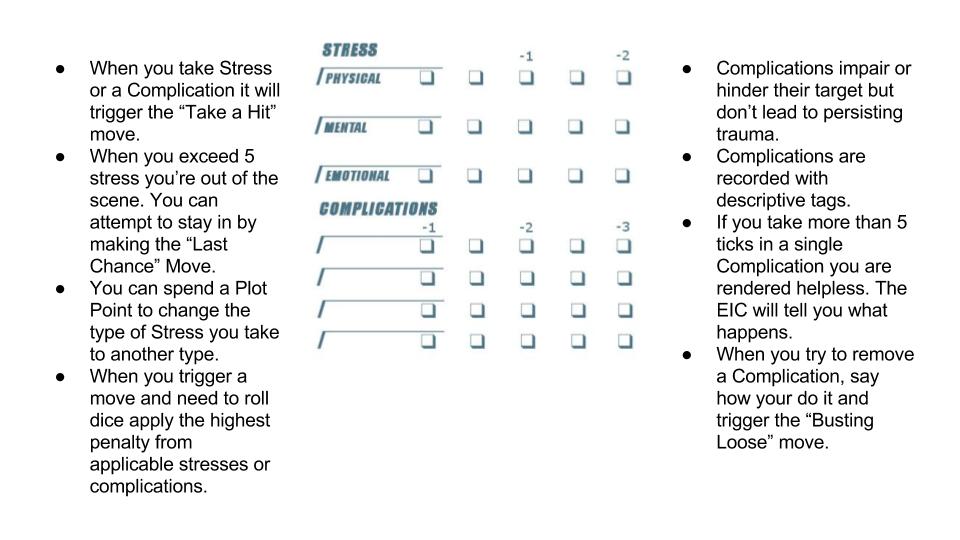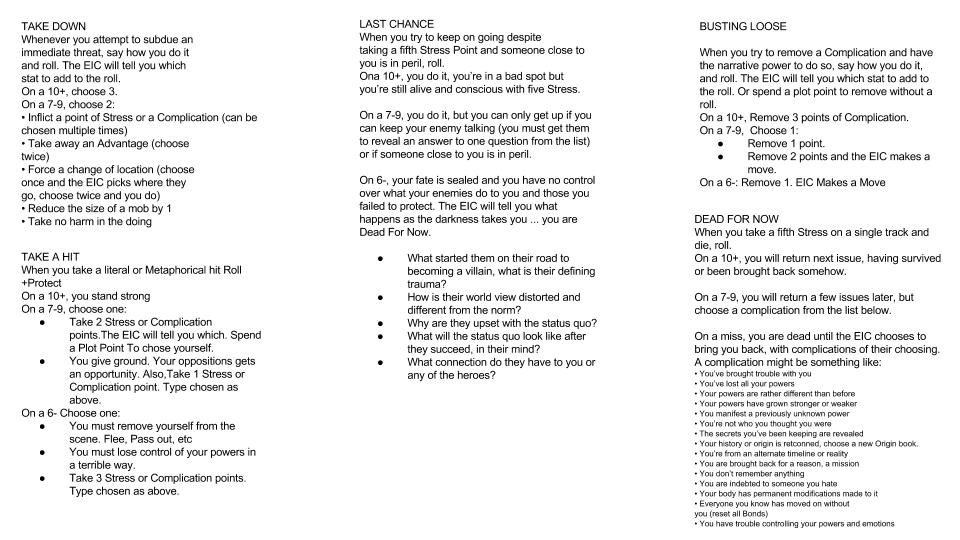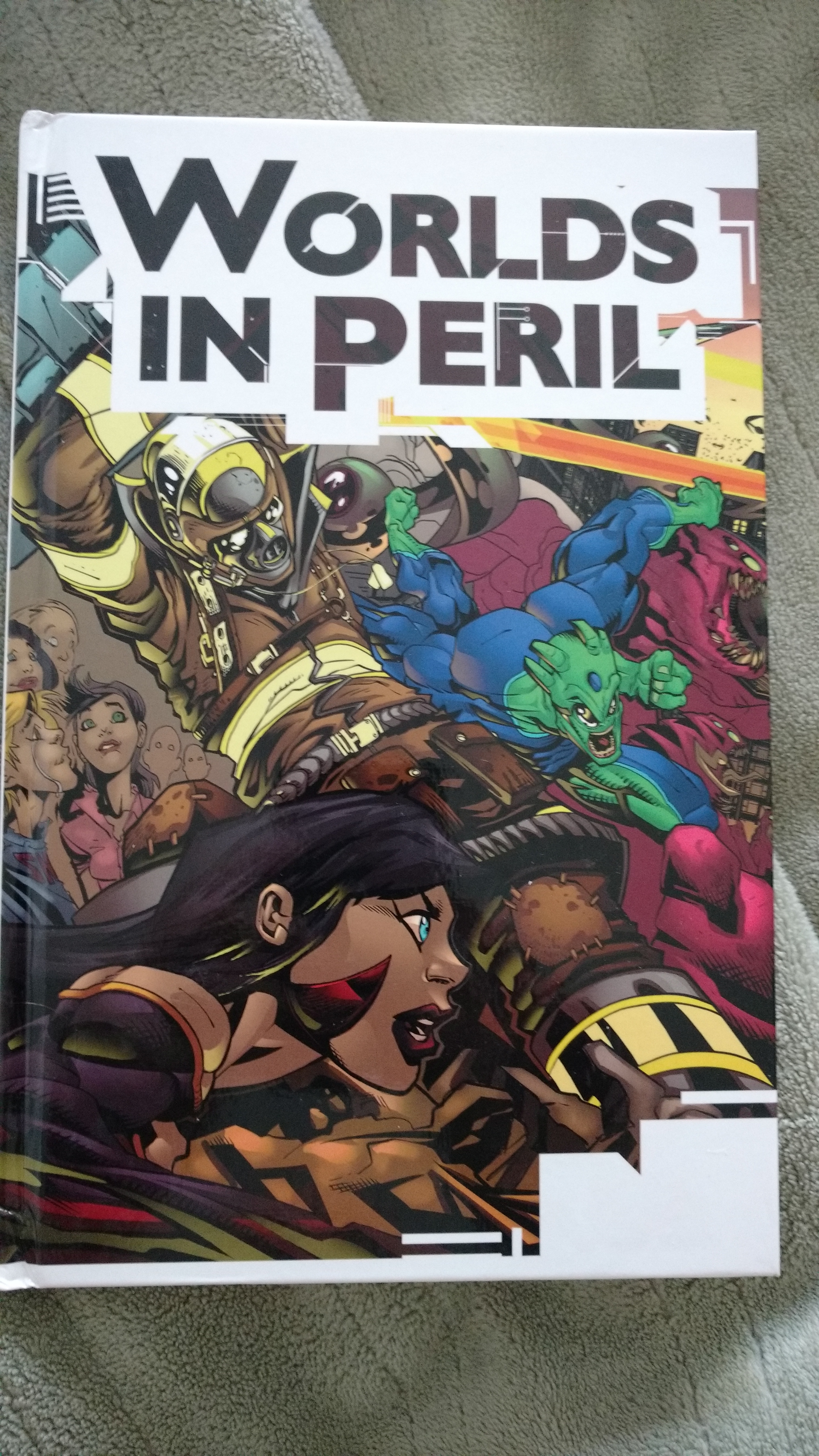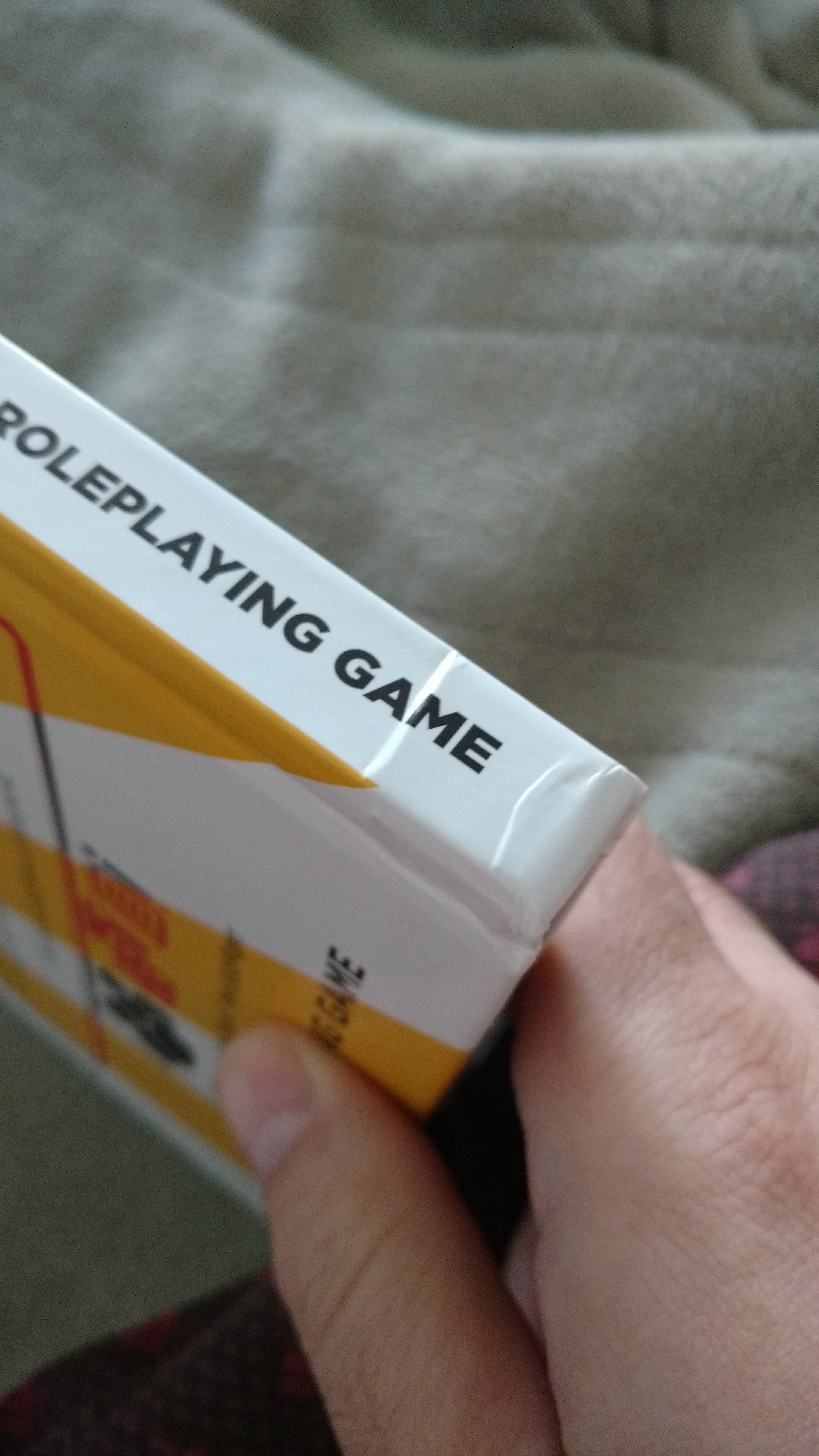I recently finished a 5 session game in Worlds in Peril and was pretty happy overall with the results.
I recently finished a 5 session game in Worlds in Peril and was pretty happy overall with the results. For a bit of background I have been gaming since the 80’s and for the last handful of years, I have been leaning toward narrative style RPGs. I love supers RPGs and have run Villians and Vigilantes, Faserip Marvel, Mutants and Masterminds, Champions, Marvel Super Heroic Roleplaying, and have played in Masks: A New Generation and Worlds in Peril before running this arc. I had 3 players that are very experienced in traditional style RPGs and 1 very new to tabletop RPGs.
Our game was set in our version of the Marvel Universe (I have dubbed it the U812 Universe for my own amusement). The arc was about Hank Pym wanting to create a respected team of heroes in the wake of the events of our version of the Civil War/ Superhuman Registration Act.
For our universe, this game was the first appearance of Hyperion. His plan was to establish himself as a hero and then create a false flag Skrull invasion and then create on opportunity to become earth’s Big Daddy.
Character Generation
The PCs were the Hulk, Ant-Man, and two original characters. Character gen is great in that it is pretty easy to create a concept and I often hate the creative limitations that trad supers games have to “balance” power. I like the free form nature of WiP. However, I found myself wishing that the character sheet was a bit more helpful for players while creating their characters. I think we found some of the terminology a bit confusing because it differed slightly from the sheets to the rulebook. Also, limitations seemed a bit unclear to me. I understand and like the relationship between bonds, and the dehumanization of power level, but it seems these are categorized with power-limitations and weaknesses. To my best understanding, the only reason to take a weakness or limitation of a power in narrative but there isn’t really a carrot for it like there is for the social limitations. This seemed a bit murky to me. Part of me wants to divide essential items in half and include one-half with an origin book preprinted on one sheet and the other half on a sheet with a drive book. Though drives are a bit less permanent, Hmm
Bottom Line
I love that WiP isn’t concerned with power level and that powers are abstracted in a cool way. I’d like to attempt to redesign the character sheet to get players up and running more quickly, but though generation is slow compared to many PbtA games, it is still much faster than supers game I have played in the past. A small price to pay to be able to create the hero you want. Power based playbooks seem like a bad choice.
Moves
I think that the push move and the power profile mechanical relationship was very fun and created some tense moment in the action. Some of the tension disappears when the PCs realize that they should probably burn a bond whenever they Push, but that’s resource management, right?
Some players commented that they ended up using take down a lot. Personally, I don’t see that as a negative. I think it speaks to a well-designed move and use of conditions. You can do a lot with that one move.
I might contradict myself with my thoughts on the Fit In move. I like the move itself, but I found myself wanting more options to repair bonds and inspire more superhero drama. I found that we seemed to go into down time, talk about who burnt bonds and then mashing the rp for the burnt bonds and the Fit In move together and it felt a bit clunky to me. That could just be that I didn’t run it well. I fit in is fine, but I would like to see some moves that are more specific to disagreements, trust, etc. Having a beer with someone is good, but having a “come to Jesus” meeting with them is something a bit different I think.
Bottom line
I think the moves handle superheroic action very well and the fit in move helped us create some scenes that frankly I always tried to make happen in supers RPGs but rarely could get off the ground. However, I found myself wanting more social moves.
Bonds
I like the bonds resource. I think that choosing a relationship to damage in exchange for a heroic success is a good motivator to create to personal life scenes with heroes. One player was hoping for a more complex relationship mechanic similar to Masks, but honestly, I think it worked great. The PCs created scenes that wouldn’t have been there without the burnt bonds, IMHO.
Conditions
I love the flexibility of the conditions system. It being so open ended that it seemed you could mechanically represent anything. I have some sticking points when dealing them out to players. I get that the severity has to flow from the fiction and I see that as a plus of the system, but, perhaps because of my players trad game background (or my own) I felt myself feeling like a need additional justification to deal a critical condition. “Oh! It’s a critical condition just because you say it is?!” This is likely just my eye still twitching from years of running dnd. I also find that I needed to knock the villain’s condition threshold almost in half in order for fights to actually end. Was I doing something wrong? Whew, they can take a beating!
I need to get better at coming up with interesting conditions at each level as well. Practice.Practice.Practice.
Summary
When I think of what I want in a supers game I have a pretty concrete list. I want it to:
Allow different power levels to play together in a fun way.
Support freeform character creation
Focus on narrative vs crunch
Force players and gms to narrate their actions FIRST!
Facilitate the soap opera drama of team comics
I think Worlds in Peril does these things pretty well. Though I wanted a bit more social moves, I think this system did more to inspire downtime scenes with the bonds mechanic than other games I have played. And I also realize that the ruleset is about superheroes saving the world. More Avengers than Jessica Jones. I’ll definitely be running it again. I might finally try my hand at some custom moves.




